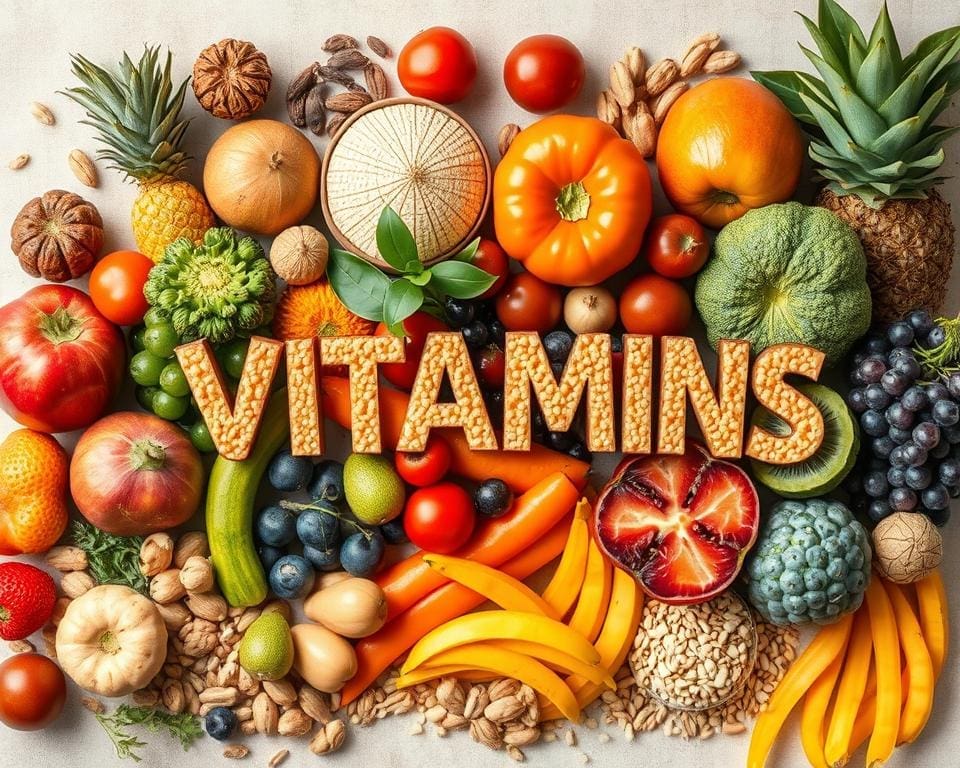In our pursuit of a healthy lifestyle, understanding the significance of vitamins and minerals for optimal health is essential. These essential nutrients play a crucial role in maintaining our body’s functionality, aiding everything from immune response to energy production. By enriching ourselves with the right vitamins and minerals, we pave the way for a vigorous and vibrant life. Embracing a balanced diet can empower us to harness the myriad benefits that these nutrients offer, ultimately leading to enhanced overall wellbeing.
Understanding Vitamins and Minerals for Optimal Health
To achieve optimal health, grasping the significance of vitamins and minerals is crucial. These compounds, essential nutrients, serve numerous functions within the body, impacting overall wellbeing. A clear understanding of what constitutes these nutrients aids in making informed dietary choices.
What Are Vitamins and Minerals?
Vitamins are organic compounds that the body requires for various physiological processes. They are classified into two groups: water-soluble vitamins, such as the B vitamins and vitamin C, which must be consumed regularly, and fat-soluble vitamins like A, D, E, and K, which the body stores for later use. Minerals, on the other hand, are inorganic elements vital for processes like muscle contraction, hydration, and bone integrity. Key minerals include calcium, iron, and potassium, all necessary for maintaining health.
The Role of Essential Nutrients in the Body
Essential nutrients play a pivotal role in energy production, immune response, and cellular maintenance. Vitamins in food provide antioxidants, aiding in the protection against oxidative stress, while minerals contribute to the formation of enzymes and hormones. Vitamin deficiency can lead to a variety of health issues, including weakened immunity, poor bone health, and impaired cognitive functions. Focusing on a nutrient-rich diet that includes a range of vitamins and minerals is crucial for preventing deficiencies and supporting long-term health.

Benefits of Vitamins and Minerals for Overall Wellbeing
Modern lifestyles often challenge our ability to maintain a nutritional balance. Understanding how vitamins and minerals contribute to overall wellbeing can help in making informed dietary choices. These essential nutrients, when adequately consumed, lead to various health benefits that enhance quality of life.
How Vitamins Contribute to a Healthy Lifestyle
Vitamins play a crucial role in supporting various bodily functions. For instance, Vitamin C strengthens the immune system, helping to ward off illnesses. Vitamin D, on the other hand, aids in calcium absorption, promoting strong bones and teeth. Moreover, the B vitamins contribute significantly to energy metabolism, enabling the body to convert food into the energy needed for daily activities. The supplement benefits of these vitamins become particularly apparent when dietary intake may be inadequate, making dietary supplements a helpful option for many.
The Importance of Minerals in Daily Nutrition
Minerals are equally important for maintaining health. Magnesium supports muscle function and is vital for energy production. Potassium plays a significant role in heart health and regulating blood pressure. Emphasising the intake of these minerals through a balanced diet can significantly enhance physical wellbeing. While dietary supplements can serve as a valuable addition for bridging nutritional gaps, they should not replace a well-rounded diet rich in these vital minerals.
Vitamins and Minerals for Optimal Health: Identifying Dietary Sources
Understanding the dietary sources of essential vitamins and minerals is crucial for those aiming to maintain a healthy lifestyle. Incorporating a variety of foods can enhance nutrient intake, supporting overall health and well-being.
Top Foods Rich in Essential Vitamins
A diverse range of foods supplies the necessary vitamins needed for bodily functions. Consider including the following items in your diet:
- Leafy greens like spinach and kale
- Colourful fruits such as berries and oranges
- Nuts like almonds and walnuts
- Whole grains including quinoa and brown rice
These vitamins in food can aid in energy production, immune function, and cellular repair, thereby contributing to a vibrant lifestyle.
Mineral Absorption – Best Practices for Your Diet
Enhancing mineral absorption is essential for maximising the benefits of the foods you consume. Implement these best practices:
- Pair vitamin C-rich foods like citrus fruits with iron sources such as red meat or beans
- Incorporate dairy products for calcium alongside leafy greens
- Avoid excessive caffeine and high-fibre foods in the same meal as iron-rich foods
Such strategies not only improve mineral absorption but also encourage a balanced and nutritious approach to eating. Embrace these habits to make informed dietary choices, ultimately leading to improved health outcomes.
Overcoming Vitamin Deficiency and Enhancing Nutritional Balance
Addressing vitamin deficiency is vital for maintaining overall health and well-being. As the understanding of nutrition evolves, individuals are encouraged to evaluate their dietary habits and identify potential shortfalls in essential nutrients. One effective strategy is to adjust meal plans to include a diverse array of foods rich in vitamins and minerals, ensuring a well-rounded diet that promotes nutritional balance.
Incorporating fortified foods into your daily meals may also offer an easy solution for filling gaps in your nutrition. Many common products, like breakfast cereals and dairy options, are fortified with essential vitamins to help combat deficiencies. However, for some individuals, diets supplements may be necessary, particularly when under professional guidance. Consulting with a healthcare provider can help determine the most appropriate supplements to take, based on individual needs and health conditions.
Regular health check-ups provide an essential opportunity to monitor vitamin and mineral levels effectively. Proactively managing your health through routine assessments lays the foundation for informed dietary choices. By focusing on prevention and empowering yourself with knowledge about nutrition, you can take actionable steps towards overcoming vitamin deficiency and achieving optimal health for a brighter future.








